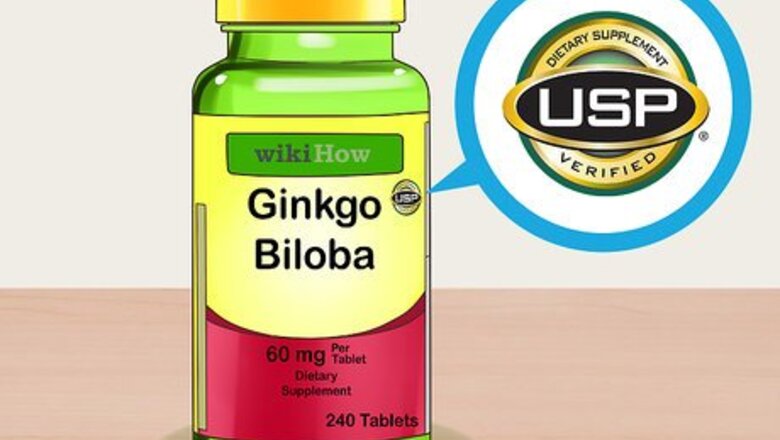
views
Following Supplement Dosage Guidelines
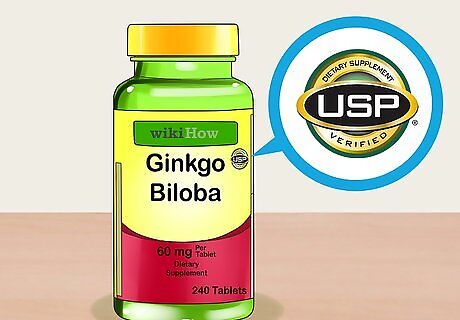
Look for a trusted seal of approval. Dietary supplements are not regulated in the same way prescription medications are. Be sure they bear the seal of a trusted inspection agency. The EFSA (European Food Safety Authority) regulates supplements in Europe. An orange “USP” seal means that supplements meet U.S. Pharmacopeia quality standards and are properly labelled. NSF International certifies products for the global market, and marks them with a blue "NSF" seal if they meet their quality standards.

Read customer reviews if you are buying your supplement online. You are strongly discouraged from consuming a supplement without a recognized seal of approval on it. If you cannot check for this seal online, read reviews by other customers to see if they would recommend this supplier.
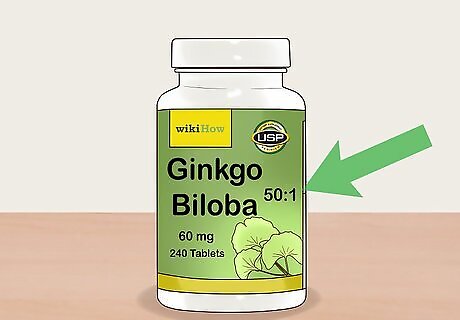
Look for a 50:1 strength extract. This number denotes the concentration of the extract you are buying, and means that 50kg of leaves were used to obtain 1kg of extract. Different ratios are available to buy, but 50:1 is understood to be ideal. A larger percentage of ginkgo in your supplement may increase its negative side effects.
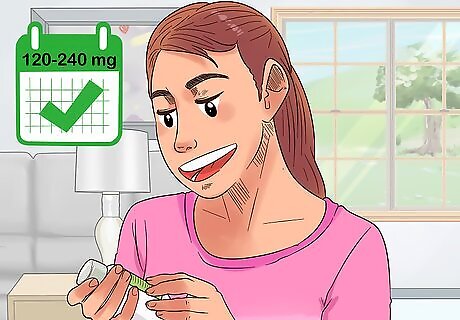
Follow the manufacturer's dosage instructions. Dietary supplements should come with a recommended dosage on the label. Most recommend taking 120 to 240 milligrams a day for adults, divided into three separate doses throughout the day. Do not exceed the recommended dose. Ginkgo was linked to cancer in lab animals who were given extra large doses of it.

Take ginkgo biloba with meals. Eating or drinking water at the same time you take this supplement with help your body absorb it faster.
Taking Ginkgo Safely

Find out if ginkgo biloba is appropriate for you. Some people who take ginkgo biloba are more vulnerable to its side effects, which include nausea, dizziness, and headaches. It should not be taken by: People with epilepsy. Pregnant or breastfeeding women. People taking blood thinners.
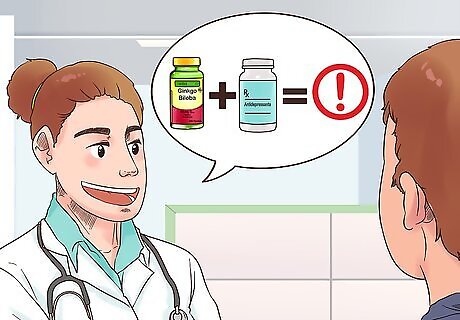
Consult your doctor if you are taking any prescription medications. Ginkgo biloba can counteract the effects of many medications and cause dangerous side effects. Antidepressants are particularly problematic. Ginkgo biloba limits the effectiveness of SSRI (selective serotonin reuptake inhibitor) antidepressants, including Prozac and Zoloft. Mixing ginkgo with SSRIs can also lead to a fatal condition known as “serotonin syndrome” Ginkgo has been shown to increase the side effects of monoamine oxidase inhibitors (MAOIs), such as Nardil and parnate.

Monitor your blood sugar closely if you have diabetes. If you have non-insulin dependent diabetes, ginkgo may decrease the effectiveness of your medication and increase insulin resistance in your body. Closely monitor your blood sugar and do not mix ginkgo with any of these classes of medication: Glucotrol. Glucophage. Actrose.

Be mindful of side effects. Though ginkgo is considered safe for adults, use should be discontinued if it has an adverse effect on your overall health. Negative side effects may include: Digestive difficulty, including nausea, upset stomach and constipation. Headache. Heart palpitations.
Making Ginkgo Tea

Buy ginkgo leaves at a whole foods store. Stores that sell whole foods and herbal remedies often carry ginkgo. It comes in pre-cut or whole leaf varieties. If you purchase whole-leaf ginkgo, be sure to wash it before proceeding.

Discard any seeds. If you find any seeds mixed in with the leaves that you bought, discard them immediately. The health benefits of ginkgo biloba come exclusively from its leaves. The seeds and fruit of this plant are poisonous, and should not be eaten.

Cut the leaves if you buy them whole. If the leaves are already dry they can be crushed. The important thing is that they fit inside a standard tea ball.
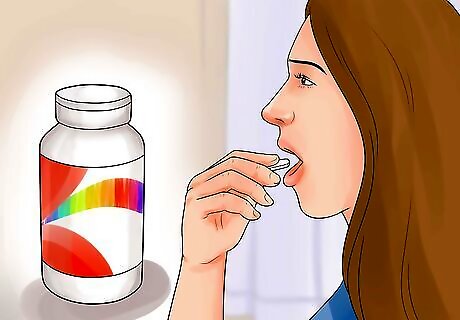
Place the leaves inside a standard tea ball. To improve the flavour of your tea, you may combine the ginkgo leaves with: Ginger root. Cinnamon sticks. Whole cloves.
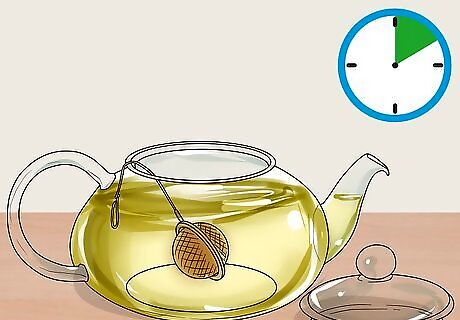
Let the leaves steep in boiling water. 2 cups of water should suffice. Allow 10 minutes for the tea to steep before you drink it.




















Comments
0 comment